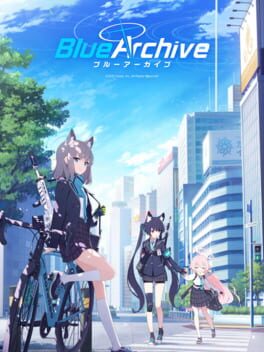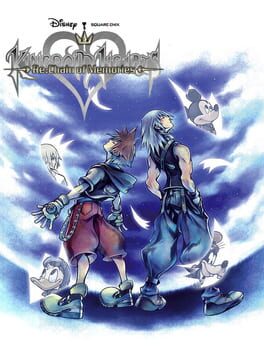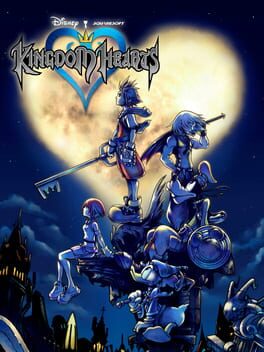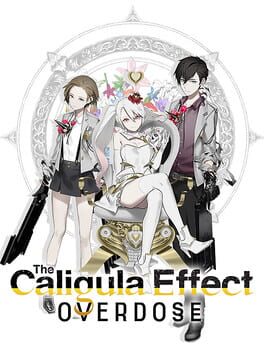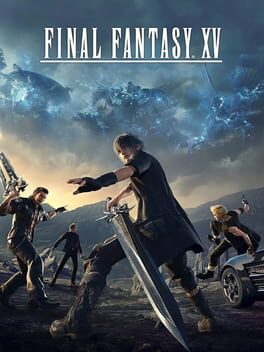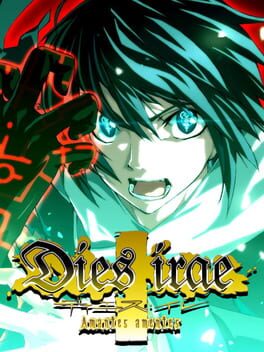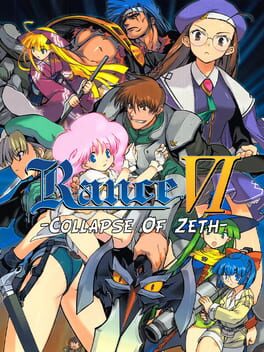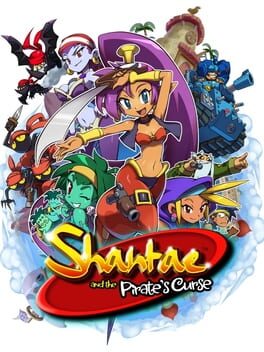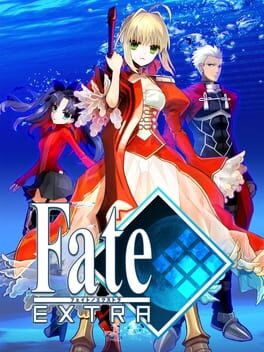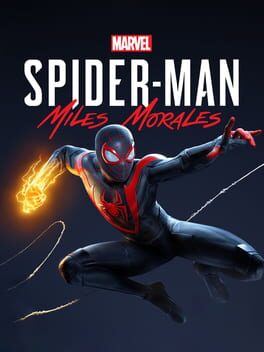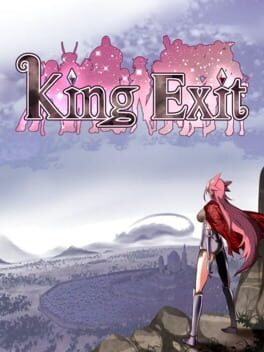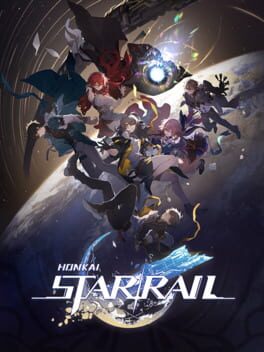Eithi
2021
This review contains spoilers
(Played up to Volume 4 Chapter 2 with Volume 5 on the horizon)
Mid gameplay. Really dislike how much it heats my phone up. The app feels like it's about to break the moment i take my eyes off of it and makes interacting with it a bigger chore than it needs to be. Got that? good.
Blue archive is concerned about our youth from the perspective of someone who's out of it but still hasn't gotten pounded out by the world. It presents a generally idyllic world of cute girls and guns and cool clothes and fun times and contrasts it with the seriousness it takes itself when those elements are taken away from the characters. The player takes on the role of someone who respects the agency of the girls as people and contrasts it with a world that seeks to take away their carefreeness through different elements: debt, security managment, politics, ideology and grief all threaten the daily lives of the students of Kivotos and the game explores the ways these ideas are entrusted to these kids and who's liable for what.
What i found most interesting in this aspect is how the main player character, Sensei, plays into this. As the only human adult in Kivotos, they've been entrusted with the role of an advisor to these girls. Not someone who can manage their lives, but someone they can rely on when the need arises. Sensei is explicitely someone who's against the removal of agency from the characters in the story, someone who's there to help guide the girls into finding and protecting what they personally want but can't bring themselves to admit they want to do. So you get this back and forward with a lot of characters who find their resolve by themselves without needing to be saved by Main Character Man who can save everyone. In a lot of chapters it's very easy to forget they're even in the story as the girls take center stage and do stuff for themselves. It finds this really interesting balance between semi self-insertness and giving them a voice that i found really compelling after years of playing gacha games with no real character to their name.
And this all culminates in Volume Final: a four chapter-long story about Sensei's role in the stories of these characters and how they respond to crises. It's an extremely satisfying end to this part of the story that ties up a lot of loose ends thematically and opens the way for the more mystic elements of the setting to take place in the future.
The real joy of blue archive is set within that framework. It's always bright and poppy and idealistic and always willing to stand up for the kids who don't deserve any of the horrors of the world; and in a real world where it's hard to see that happening to people all over, it feels...reassuring, i'd say, to see someone believe with their whole heart and soul that no, a better world is possible, and it's up to the adults of the world to pave it for the next generation.
Mid gameplay. Really dislike how much it heats my phone up. The app feels like it's about to break the moment i take my eyes off of it and makes interacting with it a bigger chore than it needs to be. Got that? good.
Blue archive is concerned about our youth from the perspective of someone who's out of it but still hasn't gotten pounded out by the world. It presents a generally idyllic world of cute girls and guns and cool clothes and fun times and contrasts it with the seriousness it takes itself when those elements are taken away from the characters. The player takes on the role of someone who respects the agency of the girls as people and contrasts it with a world that seeks to take away their carefreeness through different elements: debt, security managment, politics, ideology and grief all threaten the daily lives of the students of Kivotos and the game explores the ways these ideas are entrusted to these kids and who's liable for what.
What i found most interesting in this aspect is how the main player character, Sensei, plays into this. As the only human adult in Kivotos, they've been entrusted with the role of an advisor to these girls. Not someone who can manage their lives, but someone they can rely on when the need arises. Sensei is explicitely someone who's against the removal of agency from the characters in the story, someone who's there to help guide the girls into finding and protecting what they personally want but can't bring themselves to admit they want to do. So you get this back and forward with a lot of characters who find their resolve by themselves without needing to be saved by Main Character Man who can save everyone. In a lot of chapters it's very easy to forget they're even in the story as the girls take center stage and do stuff for themselves. It finds this really interesting balance between semi self-insertness and giving them a voice that i found really compelling after years of playing gacha games with no real character to their name.
And this all culminates in Volume Final: a four chapter-long story about Sensei's role in the stories of these characters and how they respond to crises. It's an extremely satisfying end to this part of the story that ties up a lot of loose ends thematically and opens the way for the more mystic elements of the setting to take place in the future.
The real joy of blue archive is set within that framework. It's always bright and poppy and idealistic and always willing to stand up for the kids who don't deserve any of the horrors of the world; and in a real world where it's hard to see that happening to people all over, it feels...reassuring, i'd say, to see someone believe with their whole heart and soul that no, a better world is possible, and it's up to the adults of the world to pave it for the next generation.
2021
This review contains spoilers
(Played up to Volume 4 Chapter 2 with Volume 5 on the horizon)
Mid gameplay. Really dislike how much it heats my phone up. The app feels like it's about to break the moment i take my eyes off of it and makes interacting with it a bigger chore than it needs to be. Got that? good.
Blue archive is concerned about our youth from the perspective of someone who's out of it but still hasn't gotten pounded out by the world. It presents a generally idyllic world of cute girls and guns and cool clothes and fun times and contrasts it with the seriousness it takes itself when those elements are taken away from the characters. The player takes on the role of someone who respects the agency of the girls as people and contrasts it with a world that seeks to take away their carefreeness through different elements: debt, security managment, politics, ideology and grief all threaten the daily lives of the students of Kivotos and the game explores the ways these ideas are entrusted to these kids and who's liable for what.
What i found most interesting in this aspect is how the main player character, Sensei, plays into this. As the only human adult in Kivotos, they've been entrusted with the role of an advisor to these girls. Not someone who can manage their lives, but someone they can rely on when the need arises. Sensei is explicitely someone who's against the removal of agency from the characters in the story, someone who's there to help guide the girls into finding and protecting what they personally want but can't bring themselves to admit they want to do. So you get this back and forward with a lot of characters who find their resolve by themselves without needing to be saved by Main Character Man who can save everyone. In a lot of chapters it's very easy to forget they're even in the story as the girls take center stage and do stuff for themselves. It finds this really interesting balance between semi self-insertness and giving them a voice that i found really compelling after years of playing gacha games with no real character to their name.
And this all culminates in Volume Final: a four chapter-long story about Sensei's role in the stories of these characters and how they respond to crises. It's an extremely satisfying end to this part of the story that ties up a lot of loose ends thematically and opens the way for the more mystic elements of the setting to take place in the future.
The real joy of blue archive is set within that framework. It's always bright and poppy and idealistic and always willing to stand up for the kids who don't deserve any of the horrors of the world; and in a real world where it's hard to see that happening to people all over, it feels...reassuring, i'd say, to see someone believe with their whole heart and soul that no, a better world is possible, and it's up to the adults of the world to pave it for the next generation.
Mid gameplay. Really dislike how much it heats my phone up. The app feels like it's about to break the moment i take my eyes off of it and makes interacting with it a bigger chore than it needs to be. Got that? good.
Blue archive is concerned about our youth from the perspective of someone who's out of it but still hasn't gotten pounded out by the world. It presents a generally idyllic world of cute girls and guns and cool clothes and fun times and contrasts it with the seriousness it takes itself when those elements are taken away from the characters. The player takes on the role of someone who respects the agency of the girls as people and contrasts it with a world that seeks to take away their carefreeness through different elements: debt, security managment, politics, ideology and grief all threaten the daily lives of the students of Kivotos and the game explores the ways these ideas are entrusted to these kids and who's liable for what.
What i found most interesting in this aspect is how the main player character, Sensei, plays into this. As the only human adult in Kivotos, they've been entrusted with the role of an advisor to these girls. Not someone who can manage their lives, but someone they can rely on when the need arises. Sensei is explicitely someone who's against the removal of agency from the characters in the story, someone who's there to help guide the girls into finding and protecting what they personally want but can't bring themselves to admit they want to do. So you get this back and forward with a lot of characters who find their resolve by themselves without needing to be saved by Main Character Man who can save everyone. In a lot of chapters it's very easy to forget they're even in the story as the girls take center stage and do stuff for themselves. It finds this really interesting balance between semi self-insertness and giving them a voice that i found really compelling after years of playing gacha games with no real character to their name.
And this all culminates in Volume Final: a four chapter-long story about Sensei's role in the stories of these characters and how they respond to crises. It's an extremely satisfying end to this part of the story that ties up a lot of loose ends thematically and opens the way for the more mystic elements of the setting to take place in the future.
The real joy of blue archive is set within that framework. It's always bright and poppy and idealistic and always willing to stand up for the kids who don't deserve any of the horrors of the world; and in a real world where it's hard to see that happening to people all over, it feels...reassuring, i'd say, to see someone believe with their whole heart and soul that no, a better world is possible, and it's up to the adults of the world to pave it for the next generation.
Main game: Functionally serviceable but really fucking dogshit by the end. Marluxia phase 2 had me by the balls and i had a blast but i dont think it really teaches you how to play it right until Larxene and no boss really comes back to challenge you like her. It was pretty fun to break by the end
Reverse Rebirth: Incredible addition to Riku's arc. His gimmick is great and plays with the strengths of the combat while offering a unique challenge that Sora never has to face. The shorter levels makes the campaign tighter and the bosses are actually challenging and interesting. Worth it for it alone.
Reverse Rebirth: Incredible addition to Riku's arc. His gimmick is great and plays with the strengths of the combat while offering a unique challenge that Sora never has to face. The shorter levels makes the campaign tighter and the bosses are actually challenging and interesting. Worth it for it alone.
2002
came into it expecting a tech prototype for 2, came out of it really liking the ways it played with command-based RPG flow into an ARPG. The level design being generally cramped and segmented makes every area unique and interesting, and the ways a lot of the system play into each other is really fun. I mainly disliked how some enemy interactions worked out and how unremarkable some levels ended up being. Story's great though, we all love tales of depression and friendship.
This review contains spoilers
I think the main theme that stretches through the insomniac spider-man trilogy is insecurity. Not insecurity in the sense that the characters go through it as a thematic throughline but the writing itself.
There's this bizarre sense of fear throughout the three games. A fear of trying to do anything but the expected, of trying to live up to the living legacy of the brand, the fans' expectations and Playstation Prestige Videogames. I felt it as i went through my ninth puzzle room where Miles spells out the answer after 3 minutes of looking around,. In the bizarre way the characters would talk to themselves about what to do next. In the truly, incredibly dire way characters would just Say their feelings with no pathos and how truly awful those segments were written and acted (the entire fight between peter and MJ was fucking cringe-inducing.)
Nothing about spider-man 2 feels human. The smear of corporate-approved brand synergy is the only thing that ties the game together. There's no friction in its writing, no pull in its combat, no hook in its traversal; you spend the whole game swinging and flying and doing Content and you're done with it after 25 hours of nothing except seeing insomniac's tech team show off their shit with the SSD, admittedly an actually cool part that's mildly impressive during the Sandman fight and is never cool again.
If this is the future of the superhero game genre then i'd rather go back to 2007
There's this bizarre sense of fear throughout the three games. A fear of trying to do anything but the expected, of trying to live up to the living legacy of the brand, the fans' expectations and Playstation Prestige Videogames. I felt it as i went through my ninth puzzle room where Miles spells out the answer after 3 minutes of looking around,. In the bizarre way the characters would talk to themselves about what to do next. In the truly, incredibly dire way characters would just Say their feelings with no pathos and how truly awful those segments were written and acted (the entire fight between peter and MJ was fucking cringe-inducing.)
Nothing about spider-man 2 feels human. The smear of corporate-approved brand synergy is the only thing that ties the game together. There's no friction in its writing, no pull in its combat, no hook in its traversal; you spend the whole game swinging and flying and doing Content and you're done with it after 25 hours of nothing except seeing insomniac's tech team show off their shit with the SSD, admittedly an actually cool part that's mildly impressive during the Sandman fight and is never cool again.
If this is the future of the superhero game genre then i'd rather go back to 2007
2016
ff15 is a really bizarre and honestly broken RPG narratively. The main story has barely any focus and events keep happening for the sake of having a mini setpiece that barely matters to the ongoing story of Noctis' coming of age story. You kinda just go around with the vague goal of getting to altissia but you spend so much time in Lucis that by the time you do the game ran out of shit to make so they shit out the Altissia portion and the Empire portion in literally 6 hours and it feels like ass. Almost every main story-related event feels disconnected from itself and its very hard to form a satisfactory connection with the chain of events presented.
But the game cares so fucking much about the boys. The character writing is really strong from minute ONE and it never lets up. They're all so strongly characterized through their dialog, actions, animations and you really feel like they're real, actually real friends noctis made that you find midway through and that relationship and how they all interact carries this game hard. When they bicker or joke with eachother you truly believe these four are real people and it's genuienely the best part of the game, which makes the spots where you can see the game shine brighter hurt even more
the first 20 hours/8 chapters are the best part of the game and thankfully its the longest section. The game has a really strong core leveling loop where every system feeds into itself and rewards you with Shit and character moments. You do hunts so you get money and exp, so you can buy better items and ingredients so you can cook them, get great food buffs and go sidequesting for even more exp, all so you can cash it out at the end at a hotel and gain a bunch of levels after hours of questing and adventuring. The EXP banking system is genius because through the recontextualization of grinding as an activity that grows one single number bigger and bigger it feels all the better when you cash it out and get all the rewards at once, rather than getting one level every 20 minutes or so. While this is more or less the same as grinding like that, i think it makes the player engage with the sidequests and side material a lot more since it all feeds back into the number you're actively trying to grow and i really enjoyed taking 3 or 4 hours to do a bunch of side quests and to level up a bunch
its really frustrating seeing the game as it is. not because it could have been versus 13 and been magically better, but because its own attempts at juggling the versus 13 ideas, its own ideas and the very apparent lack of dev time makes me yearn for a version of this game where they did everything they very obviously wanted to do but couldn't
But the game cares so fucking much about the boys. The character writing is really strong from minute ONE and it never lets up. They're all so strongly characterized through their dialog, actions, animations and you really feel like they're real, actually real friends noctis made that you find midway through and that relationship and how they all interact carries this game hard. When they bicker or joke with eachother you truly believe these four are real people and it's genuienely the best part of the game, which makes the spots where you can see the game shine brighter hurt even more
the first 20 hours/8 chapters are the best part of the game and thankfully its the longest section. The game has a really strong core leveling loop where every system feeds into itself and rewards you with Shit and character moments. You do hunts so you get money and exp, so you can buy better items and ingredients so you can cook them, get great food buffs and go sidequesting for even more exp, all so you can cash it out at the end at a hotel and gain a bunch of levels after hours of questing and adventuring. The EXP banking system is genius because through the recontextualization of grinding as an activity that grows one single number bigger and bigger it feels all the better when you cash it out and get all the rewards at once, rather than getting one level every 20 minutes or so. While this is more or less the same as grinding like that, i think it makes the player engage with the sidequests and side material a lot more since it all feeds back into the number you're actively trying to grow and i really enjoyed taking 3 or 4 hours to do a bunch of side quests and to level up a bunch
its really frustrating seeing the game as it is. not because it could have been versus 13 and been magically better, but because its own attempts at juggling the versus 13 ideas, its own ideas and the very apparent lack of dev time makes me yearn for a version of this game where they did everything they very obviously wanted to do but couldn't
Dies irae is the story of a man who dreamed. It's as much the story of Ren and Reinhard, Marie and Mercurius as it is of Masada himself.
Incredibly ambitious and a bit too long, it's the game that most expresses the desire to create a story ive played in a while. It mixes everything that's cool in modern japanese urban horror with chuuni media and nazis and ties it all in a story about influences, legacies and authorship. By the end of Rea's route you'll be crying your eyes out at the sheer scale of the monster you just experienced and see it cross yet another mountain before gently decending down into a pristine lake. Play this if you want to experiences the highs and lows of an author with a lot of ambition and the jank to pull it through and fall apart again and again.
Incredibly ambitious and a bit too long, it's the game that most expresses the desire to create a story ive played in a while. It mixes everything that's cool in modern japanese urban horror with chuuni media and nazis and ties it all in a story about influences, legacies and authorship. By the end of Rea's route you'll be crying your eyes out at the sheer scale of the monster you just experienced and see it cross yet another mountain before gently decending down into a pristine lake. Play this if you want to experiences the highs and lows of an author with a lot of ambition and the jank to pull it through and fall apart again and again.
whenever the rance series decides to lock it the fuck in they always nail it. Rance VI is one of the locked-the-fuck-in games of all time.
throughout the last 3 years of learning japanese by self study, ive had the rance series by my side as a barometer of my progress. The first game i ever beat in japanese was Rance 03 because i didnt want to wait for the translation and didn't want to play the pc98 version at the time. Over time ive learned how the language itself works and with it, the trials and tribulations of Rance and Sill, how their characters have evolved and how the world around them has changed them and viceversa.
Reflecting back on VI in particular is very difficult for me, for whatever reason. While i still have 3 more games to play before the journey ends, i think back on VI the most out of all the games. The way Tori balances Urza's determination and apathy towards her life, how the climax rolls around as the stakes get higher and higher, how fun the dungeon exploration and combat and especially that final dungeon that finally let me feel what the game should have been all along. I think Rance VI is just, a really good game, and an important one, and i think writing this down like this is helping me clear my head some on how far ive gone and how much i still have left (even though at time of writing i already beat sengoku rance lmao)
its been fun. I can't wait to go back to the continent soon.
throughout the last 3 years of learning japanese by self study, ive had the rance series by my side as a barometer of my progress. The first game i ever beat in japanese was Rance 03 because i didnt want to wait for the translation and didn't want to play the pc98 version at the time. Over time ive learned how the language itself works and with it, the trials and tribulations of Rance and Sill, how their characters have evolved and how the world around them has changed them and viceversa.
Reflecting back on VI in particular is very difficult for me, for whatever reason. While i still have 3 more games to play before the journey ends, i think back on VI the most out of all the games. The way Tori balances Urza's determination and apathy towards her life, how the climax rolls around as the stakes get higher and higher, how fun the dungeon exploration and combat and especially that final dungeon that finally let me feel what the game should have been all along. I think Rance VI is just, a really good game, and an important one, and i think writing this down like this is helping me clear my head some on how far ive gone and how much i still have left (even though at time of writing i already beat sengoku rance lmao)
its been fun. I can't wait to go back to the continent soon.
2019
Resident evil 2 remake is the game that taught me what horror games should actually be like.
Let me tell you a story
Im playing Claire B's route on hardcore, just starting off. I get to the first spot with zombies and they instantly wipe my ass. I stood no chance with Claire's puny little revolver and miniscule health bar compared to Leon-Standard's almost neverending HP pool. After a bit of wiggling i get to the RCPD building and notice all the slight differences in item placement and enemy health. I'm a little bit annoyed by this but i chose to play on hardcore so whatever, its on me to suck it up and deal with it.
After a bit of exploring i get to the west wing, go through a dark hallway, and find Mr. X.For the next 4 hours i strategize and route my way through the three statue puzzles, making sure i pick up everything i need and use everything i got. I slip past the zombies and lickers and Mr. X until finally, after so many dead runs with no ink ribbons or health pickups, i unlock the central statue and start the first fight with Birkin.
they were the most exhilarating 4 hours of pure gameplay in my life.
Playing Claire-Hardcore was a lesson in management. Both managing my resources and the enemies. You're never alone, not for a second, and the constant ticking clock of your shit running out makes you hurry up and deal with the cards you're dealt with with no backsies other than risking going back to another save and losing anything you potentially earned through sheer luck in the time between that save and where you are now. Genuienely one of the most electrifying experiences ive ever had with a game.
Let me tell you a story
Im playing Claire B's route on hardcore, just starting off. I get to the first spot with zombies and they instantly wipe my ass. I stood no chance with Claire's puny little revolver and miniscule health bar compared to Leon-Standard's almost neverending HP pool. After a bit of wiggling i get to the RCPD building and notice all the slight differences in item placement and enemy health. I'm a little bit annoyed by this but i chose to play on hardcore so whatever, its on me to suck it up and deal with it.
After a bit of exploring i get to the west wing, go through a dark hallway, and find Mr. X.For the next 4 hours i strategize and route my way through the three statue puzzles, making sure i pick up everything i need and use everything i got. I slip past the zombies and lickers and Mr. X until finally, after so many dead runs with no ink ribbons or health pickups, i unlock the central statue and start the first fight with Birkin.
they were the most exhilarating 4 hours of pure gameplay in my life.
Playing Claire-Hardcore was a lesson in management. Both managing my resources and the enemies. You're never alone, not for a second, and the constant ticking clock of your shit running out makes you hurry up and deal with the cards you're dealt with with no backsies other than risking going back to another save and losing anything you potentially earned through sheer luck in the time between that save and where you are now. Genuienely one of the most electrifying experiences ive ever had with a game.
2010
fate extra gets shit on for its awful combat but those people didnt understand the real appeal of playing as tamamo no mae, getting fucked by the first 3 dungeons and completely decimating the latter half by never letting the enemy get a turn in and for that i give it 4/5 stars. wish the game was as strong as the entire conversation with twice at the end
im gonna log the first game into this too because i feel both games have the same underlying problems. Mainly that the underlying design of the entire game feels passé and out of touch with what i really like about AAA action games. The game on a moment to moment basis is never unfun but aside from the really pretty winter aesthetic there is just nothing here to really dig into. Also the writing in general is fucking awful dude like jesus christ
2017
(played it in japanese) king exit is one of those games that truly dont leave your brain. the characters are all charming and interesting, its exploration of a fallen hero in geolouise is truly something to behold and it's really, truly inspiring knowing that all this was made by a single person using rpg maker. the entire ending sequence and the final sections with Louise havent left my mind since i beat it. i cant wait to shill this one to all my friends once the retranslation comes out
2023
an incredible battle system hampered by the need of being a soshage. Im not one to harp on gacha mechanics much but it really made me sad how a game so confident and fun in itself ended up being the worst kind of mush by needing to concede several aspects of itself to the slog of daily and weekly grinding and the truly terrible duplicate upgrade system. also the end of the snow planet was so terrible it burned me from the game hard. maybe once penacony is done ill go back and see if they got any better
